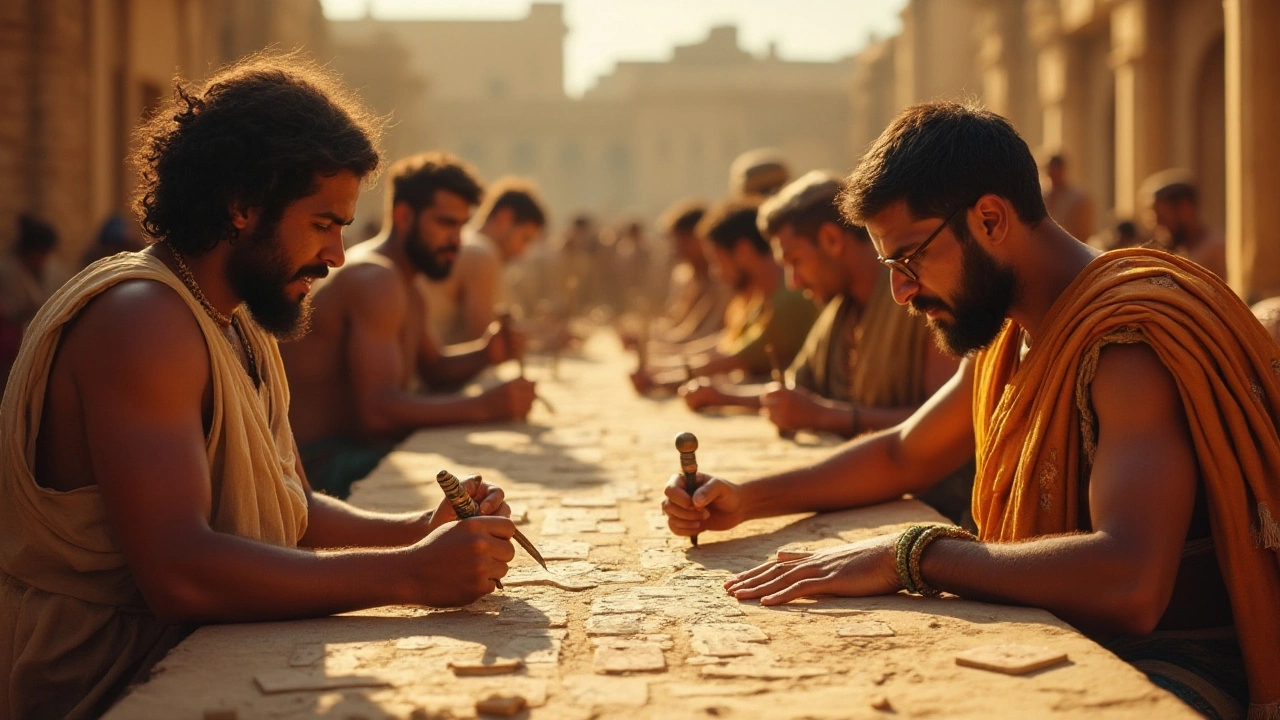Ancient Composers Who Changed the Way We Hear Music
If you’ve ever wondered where modern symphonies got their roots, the answer lies with the ancient composers. These early musicians wrote for voices, lyres, and primitive keyboards, yet their ideas still echo in today’s scores. By listening to their pieces, you can hear the birth of melody, rhythm, and harmony that still guide what we call "classical" music.
Why Ancient Composers Matter Today
First off, ancient composers give us a snapshot of cultural life in their era. Think of a Greek tragedy accompanied by a lyre—those sounds told stories of heroes and gods. Knowing what they created helps us understand how societies expressed joy, grief, and ceremony before recorded sound existed.
Second, their techniques are the building blocks for later composers. The modal scales used by Gregorian chant, for example, were direct descendants of early Greek modes. When you hear a modern film score that feels "mystical," chances are the composer borrowed a pattern that originated millennia ago.
How to Explore Their Music Without Getting Lost
Start with a ready-made playlist on a streaming service. Look for collections titled "Ancient Music" or "Early Music." Focus on a few well‑known names: Hildegard von Bingen, Pythagoras (mythical but often cited), and Guillaume de Machaut. Their works are short, usually under five minutes, so you won’t feel overwhelmed.
Next, pick a single instrument to hear. The harp, the aulos, or the early organ each gives a distinct flavor. When you hear a piece, try to imagine the setting—was it a chapel, a royal court, or a bustling market? That mental picture makes the music more engaging.
If you want deeper insight, read a short bio of the composer before you listen. Knowing that Hildegard was a 12th‑century abbess who claimed divine visions adds emotional weight to her chants. Similarly, learning that Machaut pioneered the concept of the "song cycle" helps you hear the structure in his ballades.
Finally, try a hands‑on approach. Many music schools offer workshops on medieval instruments. Even a simple online tutorial on how to play a basic pentatonic scale can connect you to the same notes those ancient creators used.
By mixing listening, reading, and a bit of practice, you’ll start to hear the threads that link a 9th‑century chant to a 21st‑century movie score. Ancient composers may be far back in time, but their music is right at your fingertips—just press play and let history play out in your ears.

17 Jan 2025
Exploring the origins of written music, this article takes readers on a journey through time, highlighting key figures and cultures involved in this artistic evolution. From ancient civilizations to medieval scholars, the development of musical notation is a tale of cultural diffusion, innovative minds, and a quest for preservation. Delve into the stories of pioneering composers and the necessity that sparked the creation of musical systems, reflecting on their enduring influence over today's music.
Continue reading...
